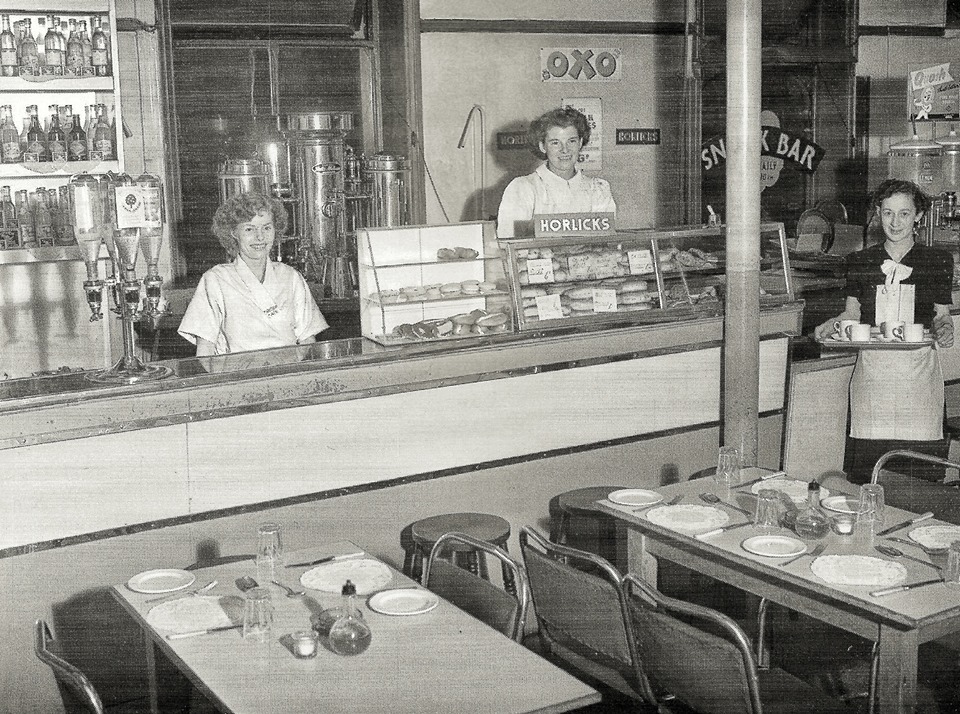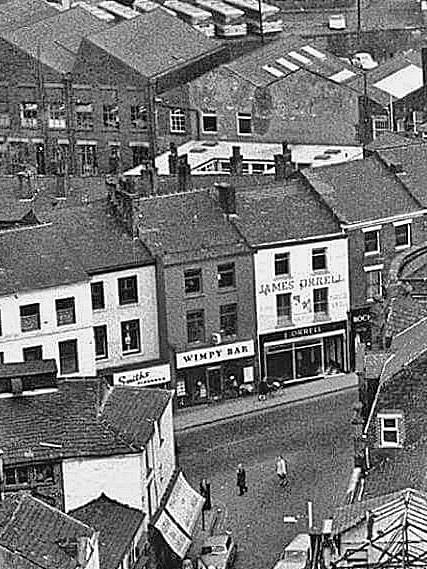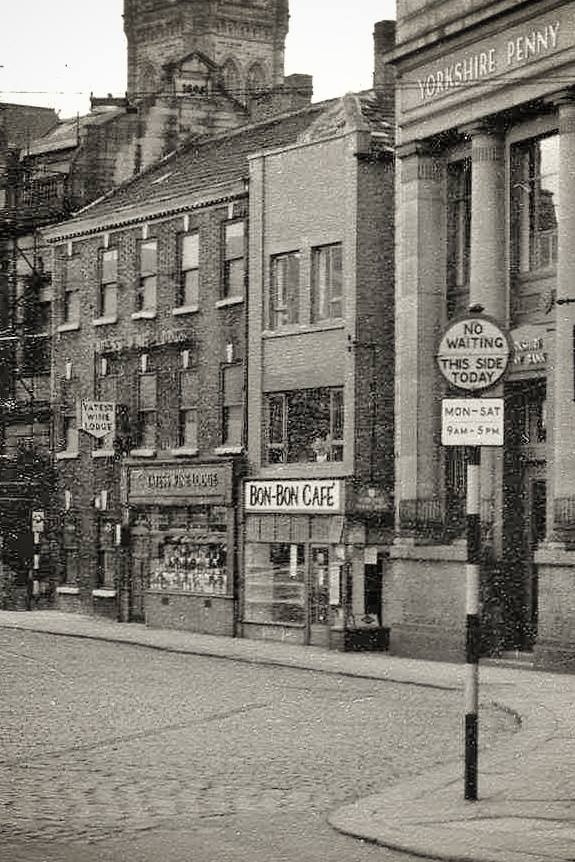Rochdale coffee bars of the 1960’s

Whilst memories of World War II were fading for those who had participated in it, the generation that followed in the late 1950’s and 1960’s was finding its own feet and shaping its own world. With a little bit of money in their pockets, a buoyant job market and new businesses to exploit them, ‘youth culture’ blossomed for many teenagers and part of this included the coffee bar or café.
Yet places to gather and drink coffee didn’t begin in the 1960’s, not even in Rochdale. As far back as the 17th and 18th century shortly after the beverage was introduced into this country, coffee houses were places to meet and discuss politics, chat socially or to conduct business. In those days you might have to pay to get in, but one penny would cover entrance and a cup of coffee, tea or chocolate as well. However, by the 19th century the fashion for the coffee house had had its day, being replaced by gentlemen’s clubs and a rise of the public house culture.

One of the earliest notices for a coffee house in Rochdale came in December of 1880 with the opening of the Sudden Coffee Tavern, a Tudor style building just off Manchester Road which had previously been ‘Ye Three Cups’ cocoa house. The interior held at least 70 patrons with seats throughout and in the window recesses. It had oak antique-designed tables with marble tops and old fashioned fire-grates. By 1919 there were many more coffee shops in town, some owned by famous Rochdale names such as James Duckworth who was branching out from groceries with three coffee shops in the town centre.
Following World War II however, a new clientele, one younger than those who had frequented coffee houses of the past, took centre stage. With a modernist sense of style, one determined by the youths themselves, they took to the coffee bars in large numbers. Whether catering for ‘rockers,’ ‘mods’ (or neither), these places would be decorated and furnished accordingly, a minimalist style along with new materials like formica, leatherette and plastic replacing the old oaks of previous eras. The Wimpy Bars, with their garish orange interiors were typical of the fast-food and fast-cleaned environments which were a young person’s answer to the public house. Here, they could meet and show off their latest clothes, shoes or musical tastes. None of these places had a license to sell alcohol, so soft drinks and coffee were the order of the day with Italian espresso machines bringing a touch of continental glamour to the streets of the town.

And in Rochdale there were a number of cafes to choose from, dependent on which ‘tribe’ you belonged to. There being no age limit of course anyone could drop in, and there was no control over them by the church as was the case with youth clubs so there was plenty of the freedom demanded by these new consumers. On Drake Street there was The Rainbow, often known as Molly’s after the women who owned it, just up from the San Remo which is still there and under the same management ! Mods might meet in the brightly-lit and minimalist interior of The Wimpy Bar opposite Fleece Street or visit The Masque in the evening at the corner of Manchester Road and Mellor Street. The Masque was a small but popular haunt for teenagers in town. Owned by Michael Carr and run by Rene Carr and her daughter Pat, it had a scooter room and back room both of which had juke boxes and pinball machines. They sold coffee and burgers, there was dancing and one or two bands played there.
Other coffee bars owned by Michael Carr in the 1960’s included The Medici, opened in 1961, an upstairs room hidden away between Drake Street and Baron Street near to Dennis Hope’s. Apart from the evenings and weekends, this was a favourite lunchtime haunt for pupils of the Technical School, many coming back late to afternoon lessons after a coffee in the Medici. Out of town there was The Three Cellars on Dale Street in Milnrow, again owned by Michael Carr, hosting local bands such as The Blue Notes, The Vincents, The Travellers and The Avengers. The building is now a medical centre.
It is a shame that there are so few places for teenagers to meet in an alcohol-free environment these days. Coffee bars were places in Rochdale in the 1960’s and 70’s where friends could get together and swap ideas on clothes, music and their own lifestyle choices. No binge drinking, no coffee-abuse, simply a place to go and ‘be yourself.’ Would that there were such places for them today !